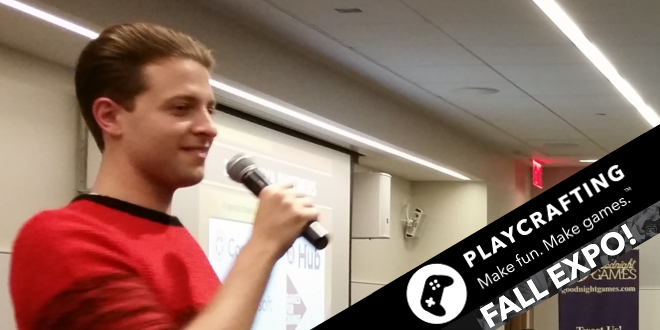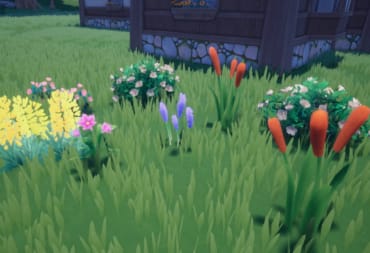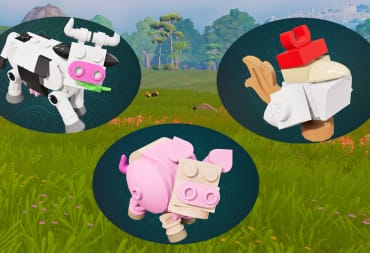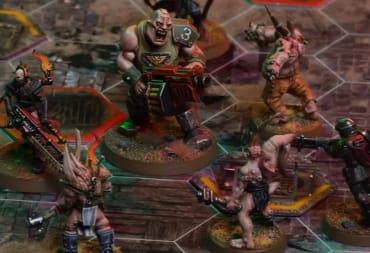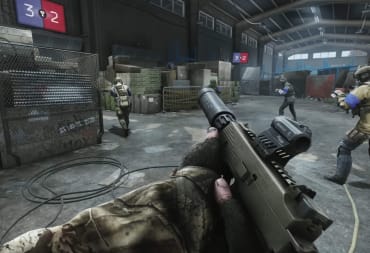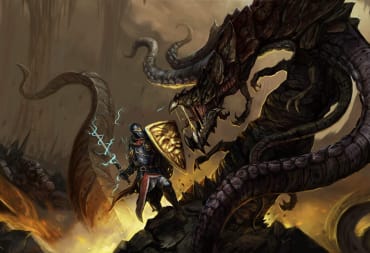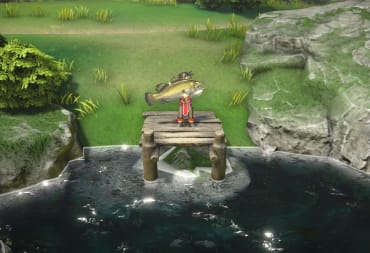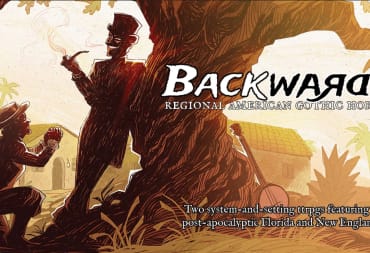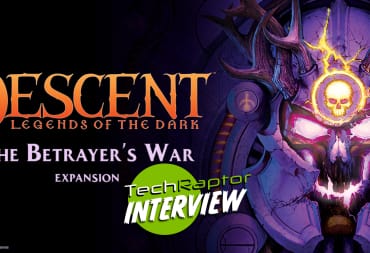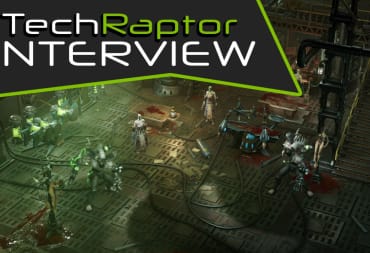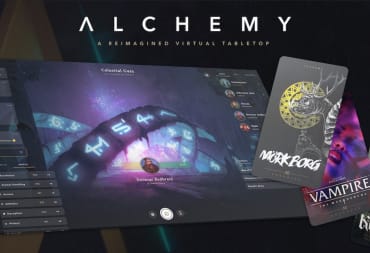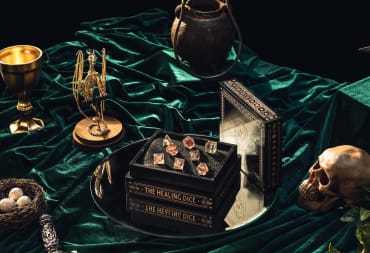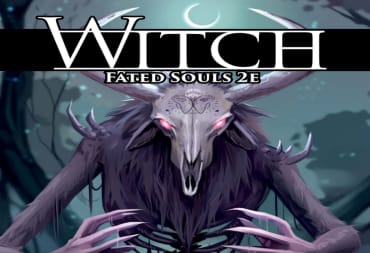When I first started writing for TechRaptor at the beginning of 2015, I was keen on attending any interesting gaming events in my area. When I heard about a game developer expo that was going to have 75 indie developers all in one place, I jumped at the chance to attend it.
I was heading to one of Playcrafting's quarterly expos. This three and a half hour event would have dozens of indie video game and board game developers showing off their current and upcoming projects in various states of completion. I sat down with Playcrafting's CEO and Co-Founder Dan Butchko to find out more about the event, its purpose, and its history.
TechRaptor: Tell me about Playcrafting.
Dan Butchko: Sure, so Playcrafting started back in 2009 as the New York Gaming Meetup. My co-founder started it just as a way for developers to meet other developers, show off games that were being made, and it really pre-dated a lot of game communities that have now also kinda sprung up throughout New York.
TR: When you started Playcrafting it was basically just small events?
DB: My co-founder started it just as a regular event. I think it started with probably ten people or so. They would meet once per month, have a demo night, and show off games they were working on. So the first 2 1/2-3 years of its existence, Playcrafting, which was at that point the New York Gaming Meetup, was just a monthly demo night. At bars, they had it at General Assembly a couple of times.
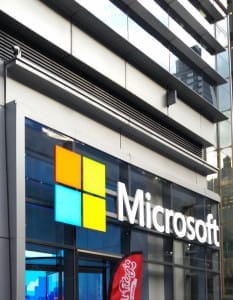
TR: Like a game dev Fight Club?
DB: Kind of, yeah. [laughs] And at some point the relationship with Microsoft came up because someone who eventually moved on to work for Microsoft was part of the original meetup. So for the first couple of years it was literally just a monthly demo night, maybe a talk here or there. And then my co-founder decided he wanted to start diversifying the events, maybe offering a little bit of what we called "deep dives" back then which would be the education side.
TR: When I looked into this event, I actually saw an article by one of the developers here who said, "I went to Playcrafting events and made these games based on the events."
DB: Oh, was that Glenn [Orzepowski]? It Happened In Outer Space?
TR: I think it was. There was an article that showed all the stuff, and that's really interesting and now he's showing off a game that's probably gonna go to market here. That's the whole chain of events.
DB: I haven't even gotten to that part yet, yeah! For the first several years it was mainly just events and then it was rebranded as the New York City Games Forum. I think it was 2012 or so? We started offering some educational panels which we called "deep dives" and a quarterly playtest night which was the precursor to what we call an Expo now. I was brought in about a year and a half ago to really take it from being that core meetup group which at that point had already had 4,000 members. We had gotten an e-mail list going. So when I was brought in we re-branded it as Playcrafting. We made it into a new website, fully-fledged, events and education for game developers. So now what we do is each month is we have about eight classes, one or two workshops, and we also do multi-week courses. All around game development. Everything from coding and software, art, audio, voice acting to writing, business, legal, crowdfunding ...
TR: Marketing?
DB: We just had a marketing one last week. As long as its game-focused, we offer it. We've really just let the community dictate what they want to see. We're focused on both game development itself and helping developers become successful business owners. A lot of higher-ed focused communities that are all around games solely as art or making games that are different and that kind of thing - we encourage that as well, but a big focus of ours is to help make developers successful business people.
TR: There's been a rash of stories lately in the gaming press about developers saying, "I've made this great game and nobody bought it, I quit." The charitable thing to say is that some of them had thrown really immature tantrums—
DB: On Twitter or something? [laughs]
TR: Yeah. Which would not be something somebody would do if they had taken even a basic level marketing and PR course. Places like Digipen and stuff, do they have [marketing and PR] courses?
DB: Well the other thing is too, with higher ed ... there's such a barrier for entry.
TR: Tuition, boarding, physically going there. So the general concept is lowering the barrier?
DB: Much lower.
TR: What is the barrier to the entry? Someone like me walks through the door. I want to start making games. What do I have to do to get into Playcrafting?
DB: Sure. There's no application process. Anybody can join. Obviously it's paid content. We have what we call "Classes" which are one-offs on weeknights. Usually we'll do them on Tuesdays and Thursdays. It's $25 per person. A quick two to three hour burst of information.
TR: Do you ever do anything more long form?
DB: Yeah. We have full-day workshops which are typically on a Saturday. That's $150 per person but you're there for seven to eight hours for the day.
TR: Someone could make a game in that time, cradle to grave.
DB: Yeah.
TR: Have you actually done that? Make a game, cradle to grave, in eight hours?
DB: Yes. We call that workshop "Release Your First Game."
TR: Basically a little game jam.
DB: Yeah. We basically transform the attendees into a dev studio. There's no requirement for entry as long as you pay the fee and register online.
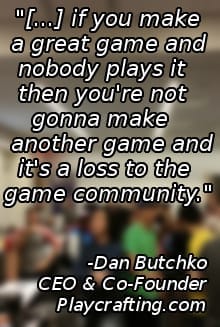 TR: So somebody could come in with literally no idea what they're doing.
TR: So somebody could come in with literally no idea what they're doing.
DB: Right, right. And by the end of that session you have a game with your name on the credits in Google Play. Which is really, really empowering for people that are completely new to game development. Like I said, it's all about lowering that barrier for entry. So that comes in experience, cost, demographic, etcetera.
TR: That's something that's really been speaking out to me. You look at something like Minecraft. Six or seven years ago, nobody has any idea what the hell Minecraft was aside from maybe a couple hundred people on 4chan [and online forums]. And that's where it started and now it's the third best-selling game of all time. That's a guy who probably spent zero dollars on advertising. He just had a game that was reasonably priced. He didn't care if people pirated it. So I think how many people don't have marketing skills and how many [games like Minecraft] are out there and people don't know about it.
DB: Well that's the problem. It's kind of like—and this is a very grim comparison—I like to use the comparison of how people have a fear of plane crashes. You get in a plane and you're terrified because when a plane crashes that's what you hear about on the news. But you hear about it on the news because it's rare. And that's part of what we're trying to with Playcrafting. A lot of developers get discouraged because they hear those stories, they see Indie Game: The Movie, and they say, "I wanna do that! And if I just make a game and put it out there, it's gonna catch on!"
TR: I've been [looking at some of the games at the Fall Expo] and I saw games the ran the gamut from, like ... this is something that will be on top sellers on Steam when it comes out, probably, or at least it looks like it could be. And I've seen games that are a couple steps away from using nothing but Unity Store assets and it's obviously their first game. Here. Complete range of it. That's what surprised me.
DB: I'm glad you pointed that out. That's what I like to do when we have our bigger events because I like having a huge variety of experience levels, genres, even quality of the games. Some of those games are not even remotely finished. Some of them are released. That's why we call [these events] Expos now. Some developers are using them to just promote.
TR: I just got a general idea of what to check out and I'll let the event and the devs speak for itself.
DB: And that's the thing... frankly, I'm running a business at the same time here. If I on the business side and also community building side, if I want to grow something I need to be not just tapping into people that already know what the coolest new things are on Steam for example. I want to tap into the parent and child that play Candy Crush Saga on the subway and don't even consider themselves "gamers". So having a diversity of games, a diversity of developers... we did a huge event here two weeks ago with Square Enix.
TR: And [I've seen] board games, too. So Playcrafting isn't strictly ...
DB: It's not strictly digital. We're open to all types of games—digital, card games, board games. We've done live game stuff before.
TR: How broad would you do that? Would you run a workshop that was like "How To Write A Choose-Your-Own Adventure Book?"
DB: That's why it's cool that we were started as a meetup. Because even though we're now like a fully-fledged business it's fully audience-determined.
TR: So if enough people ask for it, you would do it?
DB: If we have a class on it, and a lot of people show up I would repeat that class. I mentioned two of the educational pieces we do so far, there's classes and workshops. If something is doing really well as a class it becomes a workshop.
TR: So that's your model. Classes for downstreaming information, workshops for actual hands-on [instruction]. But [workshops] are harder so you don't want to commit to doing those if you don't have interest. So you use the classes to gauge interest?
DB: Right. And then the newest level that we have which is gonna be expanding next year is our eight week courses. We now offer here at [Microsoft's Times Square location]—and we're getting some more partners in the area to host us as well—an eight week course. Learning in Unity in eight weeks. You build four games with a developer that is actually making games in Unity which is really helpful. So you're learning from local developers. You're supporting the local development community directly. The barrier for entry on all levels is lower.
TR: Twenty-five bucks.
DB: For the [one day] classes. For the [eight week] courses, it's $2,500. If you compare it to higher-ed, you can just take that one thing and that will be it if you want. There's no application process. We want as many people to take these things as possible so we work out payment plans with almost every single person. We just want as many people making games and learning how to make games as possible.
TR: Do you have anything along the order of scholarships?
DB: We [don't], I think mostly because haven't had like a full curriculum.
TR: Nothing super expensive [like university].
DB: Yeah. I think starting next year that's something we'll have. I want to get through a full year of multiple courses per quarter. Again though, it's all dictated by the community. So these courses have just taken off and there's been waitlists and waitlists each time so that tells me we need to have more of that Unity course and start trying out some other topics.
TR: Now this particular event where we are now [Microsoft's Times Square location], this is Microsoft space.
DB: This is Microsoft, yeah.
TR: Are you always hosted in this space here, or do you bounce around?
DB: 95% of the time, all of the educational pieces I mentioned and the events are here. We'll do classes and courses in the smaller conference rooms and then we'll have the bigger events in a larger space. Most stuff is hosted here, every now and then we'll have it at other places. One thing I would say that the takeaway should be aside from the [low] barrier for entry and the community-building side [is that] our main goal here is help turn gamers into game makers and game makers into successful business people. If there's one line to take away, that's it. Because if you make a great game and nobody plays it then you're not gonna make another game and it's a loss to the game community. It's about helping make sustainable developers over time and tapping into gamers. People who are generally interested in games.

TR: Okay, at this point I have a couple of direct questions for you. Real rapid-fire.
DB: Go for it.
TR: Do you have any kind of free or open-house events just to try and get people interested or does everything have flat fees?
DB: We have really great sponsors. We do sponsored content. Anytime we bring a big sponsor on it's all with the education piece in mind. I'm never gonna take a sponsor and have them give a pitch to a bunch of people. We do free sponsored classes which are actually classes. It's not just pitch events. And those are free. We also have free events from time to time. We just did a Square Enix event two weeks ago with the developers of Tomb Raider and Just Cause. Huge event and that's a great way to get people in the door that are just generally interested. And we do free info sessions for our larger courses, too.
TR: In your opinion, do you feel Microsoft's involvement in your company is signifying a greater commitment to gaming from them?
DB: Absolutely.
TR: Would you be willing to say that [Microsoft] explicitly said as much or was it just generically that they're interested in what you're doing? Was it that they like your idea and they're supporting it, or they like your idea and also this is a gaming thing and they really want to push back into gaming?
DB: It's kind of both. I put some really great stories on the website about completely new developers that we've helped get making games and get their games onto Microsoft platforms. This is something I would love to do with Sony and other [companies], too. If anything, Microsoft is extremely helpful community-wise and it's more that I—on behalf of developers through Playcrafting—dictate what we do on the Microsoft side. It's more filtered through us and through me instead of them saying, “You need to get us like five developers.” There's no official structured pipeline. It's more that [we] have this space, we would like to have more games on our platforms, yes. But if you have games that you're making on iPad, on iOS... we've even had some Playstation games in here before. They've been super open to the community and they're not at all invasive which I really appreciate about them.
I'd like to extend my thanks to Mr. Butchko for an interesting interview about a company that is helping new people get into the gaming industry. I'll be having more interviews from some of the developers who were present at this event coming in the next few days.
Have a tip, or want to point out something we missed? Leave a Comment or e-mail us at tips@techraptor.net
